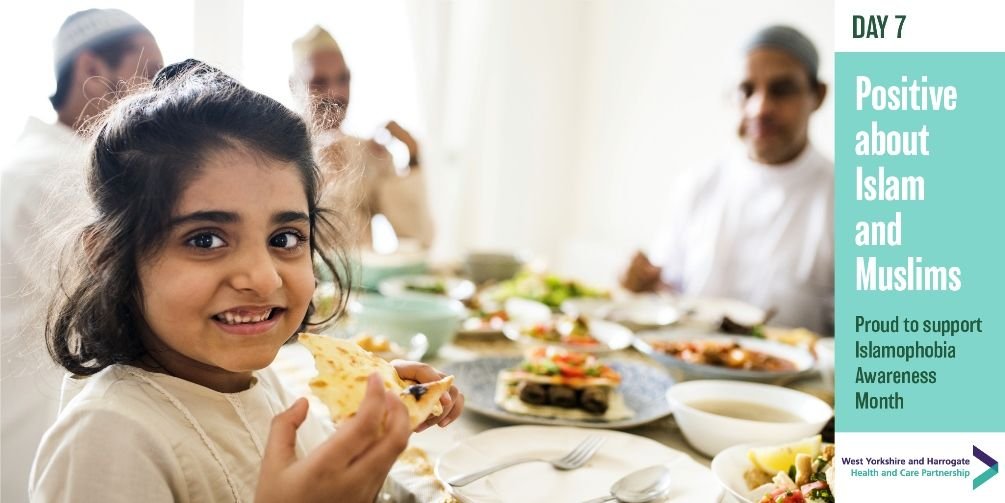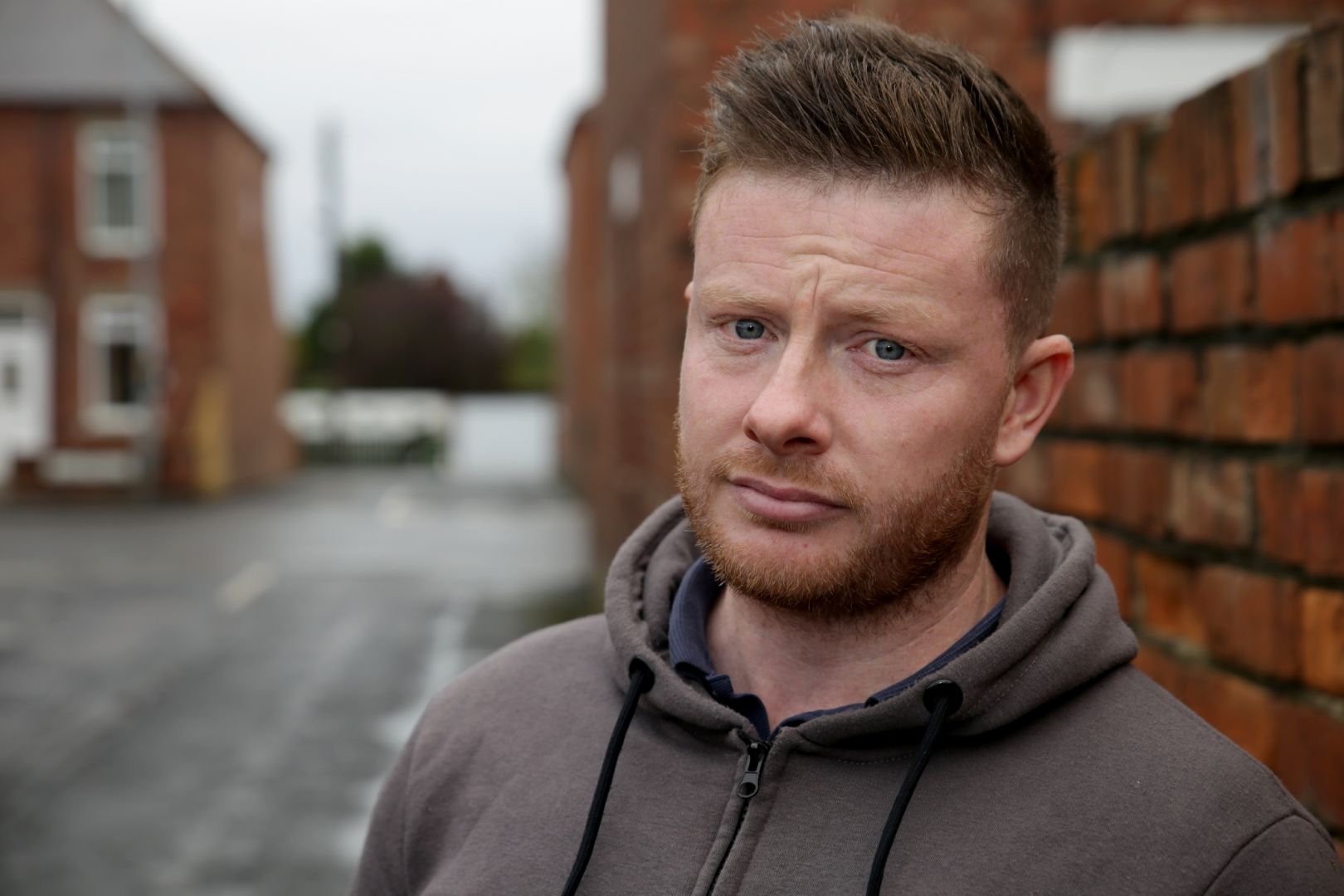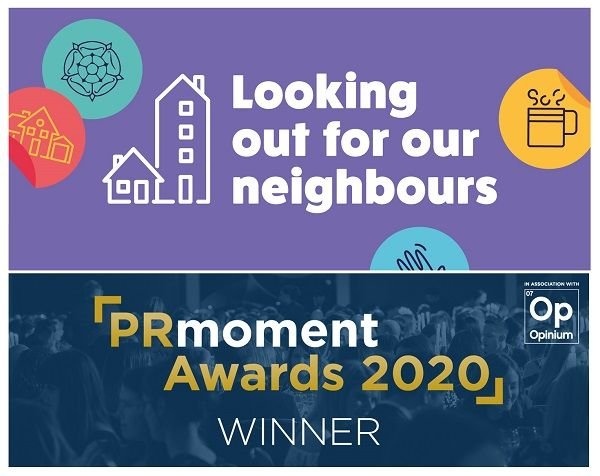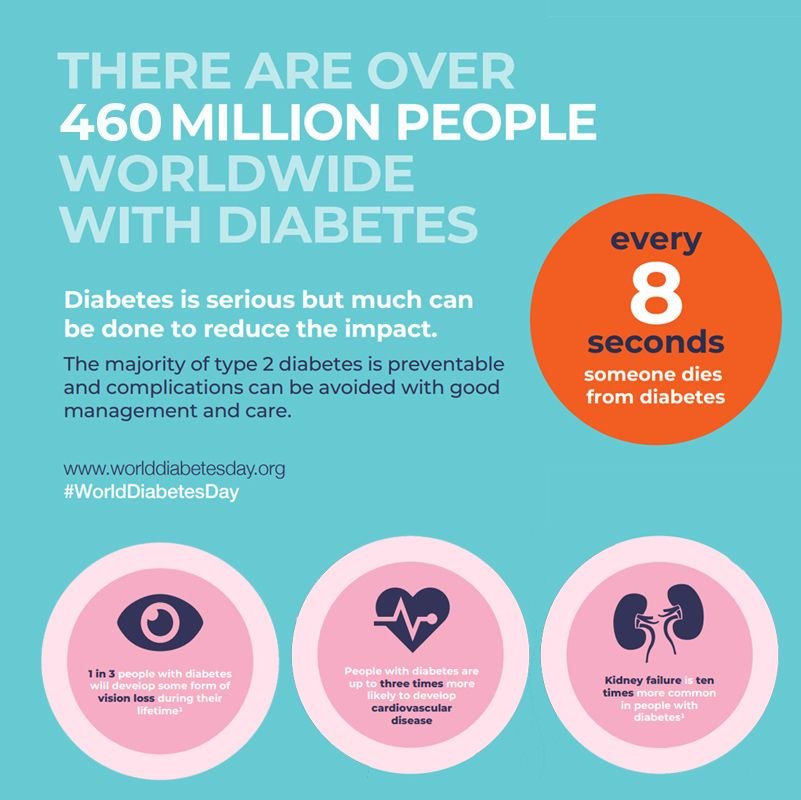Posted on: 13 November 2020
This week's leadership messages include a 'We Work Together' podcast focusing on children and young people's mental health during lockdown, a blog from Kamran Mahmood for Islamophobia Awareness Month and the latest podcast in the 'Can you hear me?' series.
We Work Together - episode 12 - Children and Young People's Mental Health
In this special double episode of the 'We Work Together' podcast, young people talked to us about how they've been affected by lockdown and the COVID-19 pandemic, and a selection of health and care partners discuss the issues they raised and answer some of their questions.
Part one is a conversation between young people Lois, James, Anna and Kemmi with facilitators Megan and Gage from 'Common Room', an organisation based in Leeds led by lived experience in mental health. This conversation was recorded in early October, before additional local restrictions and the second national lockdown had been announced.
Part Two features Sue Rumbold, Chief Officer for Children and Family Services at Leeds City Council, and Keir Shilaker, West Yorkshire and Harrogate Health and Care Partnership's mental health lead, who were joined by Sasha Baht (Head of Commissioning for Mental Wellbeing, Bradford District and Craven Clinical Commissioning Group and Bradford Council, Jane Mischenko (Strategic Lead Commissioner for Children and Maternity at NHS Leeds Clinical Commissioning Group) and Karen Jessup (Educational Psychologist at Leeds City Council). They came together to answer some of the questions posed by the young people in part one.
Islamophobia Awareness Month
 As part of our Partnership’s Positive About Islam and Muslims campaign during Islamophobia Awareness Month that takes place during November, we will be sharing blogs from our Muslim colleagues from across our Partnership. This week’s message comes from Kamran Mahmood, from Leeds and York Partnership NHS Foundation Trust. The Partnership’s BAME Network has led on developing the area’s campaign to raise awareness of the positive contribution made by Muslims both in current times as well as historically.
As part of our Partnership’s Positive About Islam and Muslims campaign during Islamophobia Awareness Month that takes place during November, we will be sharing blogs from our Muslim colleagues from across our Partnership. This week’s message comes from Kamran Mahmood, from Leeds and York Partnership NHS Foundation Trust. The Partnership’s BAME Network has led on developing the area’s campaign to raise awareness of the positive contribution made by Muslims both in current times as well as historically.
Read the Partnership's statement
False positive Muslims and subtle Islamophobia: ‘He looks like a Muslim. He MUST be a Muslim.’
Hello, my name is Kamran.
The word ‘absurd’ would be a bit harsh here but that is how I feel when someone assumes that I belong to a certain faith based on their own imagination. I have been greeted on Eid day at my workplace by my colleagues; I have been asked ‘not even water?’ during the Muslim fasting month, most of them not being aware that I would be taking a lunch break with them few hours later. I have also been questioned about my religion by patients who would ask and answer the question at the same time – cataloguing me as a Muslim. I don’t carry traditional attire and my beard style exemplifies nothing but just the trend out there... but then again, a beard is not specified to Muslims alone. Then what makes me get the tag of nothing else but a Muslim?
Is it because I have black hair on my head and face?
Or because my eyes are not blue or green? Or because I am brown, which in all its generalisation, is an umbrella term for every South Asian who is wrongly perceived to belong to an Islamic faith? Or perhaps because I have a different way of speaking English? Whichever is an accurate reason.
I will always be stereotyped as a Muslim based on the above features. None of the western clothes, fake accent or White friends circle can hide the melanin of my skin and eumelanin of my hair, which seem to be the identity of my faith. The bottom-line is that no matter what I try to look like, I will always look like a typecast Muslim to the people around me.
You may think I am a Muslim but how far have you seen me beyond my exterior? I may not have visited the Mosque in years. I may not have fasted for even a single day during the month of Ramadhan over the last decade. I may not be taking a break from work during Friday afternoon to offer weekly congregational prayer. I may belong to some other religion. I may not even belong to any religion. I may be Gnostic. I may be Agnostic. I may be an Atheist. I may be on a spiritual journey of my own. I may have only started my quest for rationality. I may not want to associate with any religion including the religion of the house I was born in. I may see God differently, I may have a different image of God in my head, I may call him by a different name, I may not even call him. I may want to keep my belief as a private affair. I may want to be identified by my personality, my character, my nature, and not by which faith I belong to, or which book I follow. My ideas may have evolved over time and I may not be a follower of any particular school of thought, but because my physical features or genetic make-up cannot be altered, will I still have to live with a certain tag attached to my identity based on the outlook? In our world today, the answer is probably yes.
In this day and age when ideas such as gender fluidity are finally getting their due recognition and acceptance, why can we not coin a term on the similar notion when it comes to someone’s faith – something beyond religious stereotypes – perhaps a concept of religious fluidity. A person born with a certain phenotype in a certain geographical location that grows up in a certain religious cult or tradition does not necessarily remain in that confinement forever. You cannot assign faith at birth. Self-realization and exploration must be encouraged in individuals when it comes to faith rather than embedding a certain school of thought in a young mind.
My physical features should not and must not define my beliefs. I may look like a Muslim, Christian, Jew, Sikh, Buddhist or Hindu but you cannot classify me to any religious group based on my biological appearance unless explicitly indicated on my part.
When I am at work the only faith I belong to is my job. I should be faithful to my job and that is it. No other faith matters at that time. When I am outside work, my faith is my personal matter. No one knows what those personal beliefs are and hence should not stereotype based on what they see. My view is that a practicing Muslim is as likely to be at target of Islamophobia as the one who just ‘looks like a Muslim’ – a false positive in this case.
Thank you for reading,
Kamran
'Can You Hear Me?' - new episode out now
In episode 7 of the 'Can You Hear Me?' podcast, presented by the West Yorkshire and Harrogate Health and Care Partnership's Black, Asian and minority ethnic staff network, Zahida Mallard, Equality and Engagement Manager at South West Yorkshire Partnership NHS Foundation Trust, talks to the Deputy Chief Crown Prosecutor for Yorkshire and Humberside, Gale Gilchrist, and Inspector Richard Clare from West Yorkshire Police, about hate crime.
What else has been happening this week?
Vaccines
The Government has asked the NHS to be ready to deliver a vaccination programme for England from December, so that those who need it most will be able to access vaccinations as soon as they are available. Detailed planning has been underway, building on the expertise and strong track record the NHS already has in delivering immunisations like the annual flu vaccination programme, to ensure that a COVID-19 vaccination programme does not impact on other vital services.
The NHS is working closely with a number of partners across Government, each with their own roles and responsibilities. Our plans will be finalised based on decisions made by those bodies, including when and what vaccines are approved and who should receive them. We will keep you updated as this important work develops.
The Personal Protective Equipment (PPE) Programme Group
The PPE Programme Group met on Wednesday 4 November. The meeting was chaired by Mel Pickup, CEO for Bradford Teaching Hospitals NHS Foundation Trust. The group has been meeting since the 1 April 2020. It includes colleagues from across the Partnership, including clinicians, procurement /supply specialists and representation from West Yorkshire Local Resilience Forum (LRF) and NHS England. The work also covers primary care, smaller healthcare providers. The clinical reference and procurement sub-groups support the programme.
The Government has updated it’s guidance on PPE for people providing home care and working in care homes (November, 2020).
A new Veterans’ Mental Health Service for the North of England
 A new NHS service for armed forces veterans experiencing severe mental health problems across the North of England has launched ahead of Remembrance Day this November. The Veterans’ Mental Health High Intensity Service provides care and treatment for veterans who are in a mental health crisis and need urgent help. It will do this by working with local mental health services that are already treating a veteran, to improve experience and outcomes for them.
A new NHS service for armed forces veterans experiencing severe mental health problems across the North of England has launched ahead of Remembrance Day this November. The Veterans’ Mental Health High Intensity Service provides care and treatment for veterans who are in a mental health crisis and need urgent help. It will do this by working with local mental health services that are already treating a veteran, to improve experience and outcomes for them.
The High Intensity Service is part of a new national service being rolled out across England. In the North of England, the service is being delivered in partnership between the NHS and well-established veterans’ support charities. Together, they will work with local mental health services to provide:
- Support to crisis care services for veterans presenting in a mental health crisis
- Support during an inpatient unit stay – including access to a clinician advice line 24 hours a day, seven days a week
- Care navigation – helping veterans and their carers find the local services best suited to their needs, and
- Support and care for family members and carers where they need it. The lead provider of the new service is Leeds and York Partnership NHS Foundation Trust.
West Yorkshire and Harrogate reality TV launches as part of ‘looking out for our neighbours’
 Looking out for our neighbours is an award winning social movement that aims to prevent loneliness and its associated health risks throughout West Yorkshire and Harrogate. It succeeds by encouraging people to do simple things to help out their neighbours.
Looking out for our neighbours is an award winning social movement that aims to prevent loneliness and its associated health risks throughout West Yorkshire and Harrogate. It succeeds by encouraging people to do simple things to help out their neighbours.
Prior to the COVID-19 pandemic, West Yorkshire and Harrogate Health and Care Partnership (WY&H HCP) encouraged over 49,000 people to get involved by making a positive difference to their neighbours lives through acts of kindness a part of the ‘Looking out for our neighbours’ campaign.
On Monday 16 November, the winter 2020 campaign will launch with a bunch of ‘neighbourly folk’, possibly someone you even know, taking part in a short docu-series to show how neighbourly kindness is making a difference to people’s lives during the pandemic.
Over twenty people from diverse backgrounds will be the stars of a series of online documentary style films from across Bradford district and Craven; Calderdale, Harrogate, Kirklees, Wakefield and Leeds. Ranging from their early 20s to late 60s we hope they will bring you everything you’d look for in a reality show, including lots of fun and tips on how you can look out for your neighbours safely whilst spreading a bit of joy.
We were delighted to hear this week that our communities have been recognized for their wonderful acts of kindness as part of the campaign and we won Public Sector Campaign for the Year at the PR Moments Award.
Go blue for World Diabetes Day
 Do something small and make a big difference in this year’s World Diabetes Day on 14 November. The theme is ‘nurses make the difference’ and there’s lots of ways to get involved. Type 2 diabetes is a largely preventable condition which can increase your risk of heart attacks, stroke, kidney disease and blindness. Having a long-term condition can also make it more difficult to recover from coronavirus.
Do something small and make a big difference in this year’s World Diabetes Day on 14 November. The theme is ‘nurses make the difference’ and there’s lots of ways to get involved. Type 2 diabetes is a largely preventable condition which can increase your risk of heart attacks, stroke, kidney disease and blindness. Having a long-term condition can also make it more difficult to recover from coronavirus.
The Partnership is organising a range of activities to support the day including online webinars and education sessions for healthcare professionals. GP practices are also sending out letters to over 100,000 people in West Yorkshire and Harrogate at risk of developing type 2 diabetes offering them a free place on the NHS Diabetes Prevention Programme.
You can read more in this news page about World Diabetes Day on our website.
Climate change
Travel grants: Do you have an idea to help people move more? Would you like some money to try something radical to get people out of their cars or to create a safer/quieter/healthier community? We are delighted to make grants up to £5000 available. Applications for 7 December.
Respiratory care: Did you know that inhalers are some of the medicines that contribute the most to climate change? We are keen to find solutions that reduce their impact in a safe way and need primary care networks and GP practices to help via two schemes on respiratory care.
Training courses: We are delighted to fund 100 spaces on a Centre for Sustainable Healthcare Course for people working for our Partnership. This includes:
- Intro to sustainable healthcare
- Sustainable quality improvement
- Carbon footprinting for the health sector
- Green space & health.
Find out more on our Climate Change page.
Flash glucose monitors now available on the NHS for people with a learning disability
Healthcare professionals can now prescribe Flash on the NHS to people with diabetes and a learning disability who use insulin to treat their diabetes. People with a learning disability are particularly susceptible to poorer glycaemic control and hypoglycaemic unawareness. The Flash glucose monitor comes with a small sensor which sticks to the skin. It measures glucose levels and can be read using a mobile app. Information collected about a patient’s glucose levels can be shared with their diabetes team so that they can review and adjust care appropriately.
Training on Flash is available for healthcare professionals at https://progress.freestylediabetes.co.uk
New film about Advance Care Planning
A new public-facing film produced by colleagues from Calderdale and Huddersfield NHS Foundation Trust, Y&H Patient Safety Collaborative and Y&H Clinical Networks which promotes Advance Care Planning is now available. It has been developed to help address the gap in public knowledge and understanding. The film shows people from diverse backgrounds who work and live in West Yorkshire and Harrogate sharing their positive thoughts and experiences of making an ACP.
The film supplements and complements the existing resource pack that is useful to patients, their families and carers (including those in care homes) and clinicians. It will help these groups to navigate through what can be a very difficult subject.
Visit the 'about Advance Care Planning' page for more information.
Onwards and upwards for the Yorkshire & Humber Care Record
 Lee Rickles, Programme Director, Yorkshire and Humber Care Record has published an update on how far we’ve progressed in connecting care to improve people’s lives. You can read Lee’s update on the news section of the Yorkshire & Humber Care Record website. The record will enable clinical and care staff to access real-time health and care information. It also provides intelligence that we can use to tailor care to the needs of local communities and to predict and plan future care needs.
Lee Rickles, Programme Director, Yorkshire and Humber Care Record has published an update on how far we’ve progressed in connecting care to improve people’s lives. You can read Lee’s update on the news section of the Yorkshire & Humber Care Record website. The record will enable clinical and care staff to access real-time health and care information. It also provides intelligence that we can use to tailor care to the needs of local communities and to predict and plan future care needs.
National Academy for Social Prescribing: Thriving Communities
Thriving Communities champions the work of local community, faith groups, voluntary organisations and social enterprises supporting communities most impacted by COVID-19, working alongside social prescribing link workers. This programme will help you to share your learning, gain new ideas, access funding and develop partnerships across sectors.
It is supported by regional voluntary sector partners and national partners: Sport England, Money and Pensions Service, Natural England, NHS Charities Together, Arts Council England and NHS England and NHS Improvement.
The new web hub includes information on:
- Thriving Communities Network
- ‘Learning Together’ regional support
- Thriving Communities Fund
- NHS Charities Together Community Partnerships Grants
It's free to join the hub and you can find out more on the NHS Charities Together website, or by contacting jo-anne.

